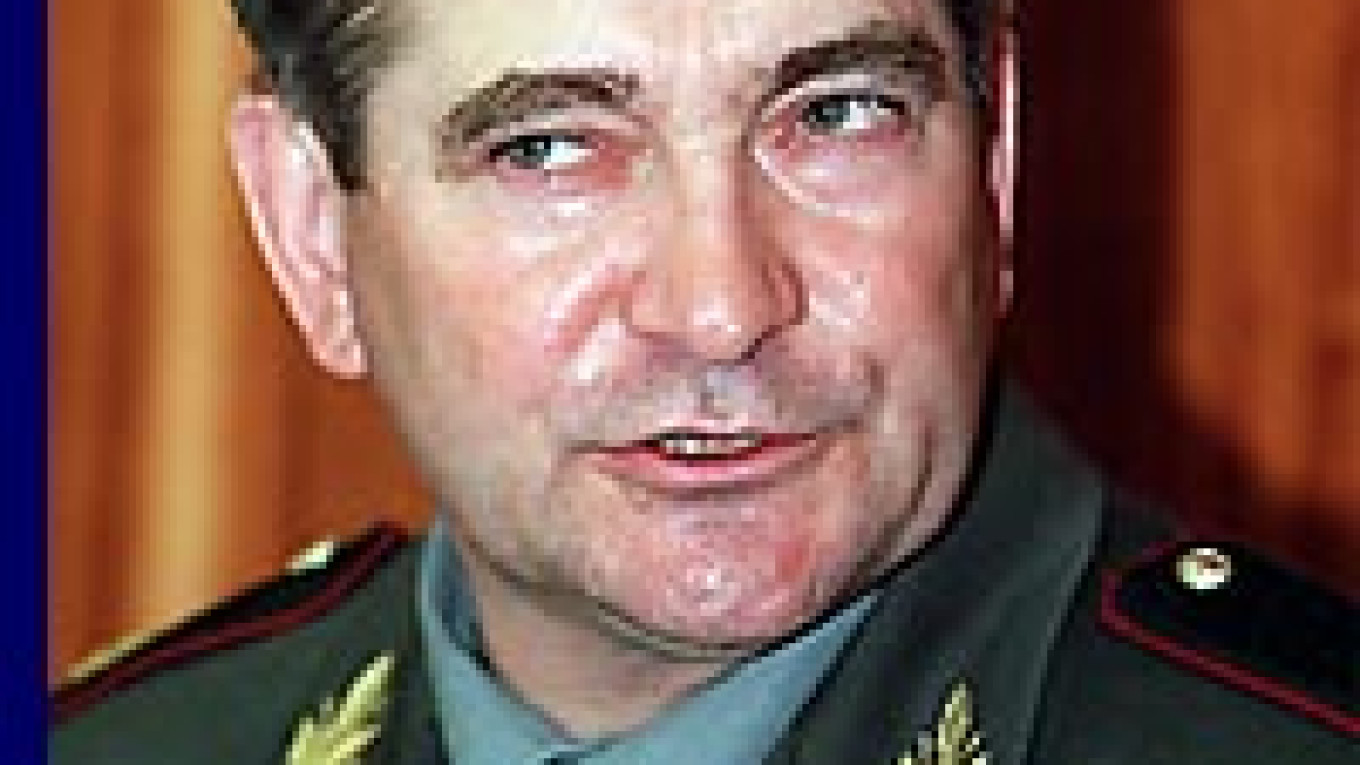Fire chief Leonid Korotchik said that firefighters had to climb a long ladder of command before finally getting a personal cutoff order from President Vladimir Putin, even though safety regulations call for an immediate power cut in such fires.
"If we had cut the power earlier, we would probably have been able to localize the fire," Korotchik said.
Instead, the fire lasted 26 hours, spreading through much of the landmark 540-meter Ostankino tower and knocking out almost all TV service to Moscow and the surrounding region for three days.
The fire chief?€™s account of the long delay comes on the heels of widespread criticism of Putin and the Kremlin for a slow and seemingly confused response to the sinking of the nuclear submarine Kursk this month, in which 118 crewmen died.
Korotchik said firemen arrived at the tower within 10 minutes of receiving a call that smoke was seen streaming from its upper reaches on Sunday afternoon. They quickly evacuated 300 people who were inside the tower, including scores of sightseers on the observation deck and patrons in the restaurant at the 330-meter level, and climbed to 450 meters to fight the blaze.
The failure to cut the power to the tower resulted in new short-circuits that kindled new fires all along the giant tower, Korotchik said. The 33-year-old tower lacks fire-prevention systems in its hollow shaft, where the burning cables were located, and the numerous short-circuits and pieces of burning cable insulation quickly spread the fire downward.
Eventually, Deputy Moscow Mayor Valery Shantsev, who arrived at the scene, called Mayor Yury Luzhkov, and he called Putin to get the permission to switch the power off, Korotchik said. Putin immediately gave the order.
"Shantsev called Luzhkov, then he called the president and the power was cut off," the fire chief said at a news conference. He did not explain why Putin?€™s go-ahead was needed.
Korotchik, who was among the firemen high up in the tower, said he and his men were at substantial risk as they tried to put out the fire while the electricity was still on.
"We faced mortal danger," he said. "?€?But we wanted to save this unique facility."
With elevators in a burning shaft still working, Vladimir Arsyukov, who led a local fire service branch, got into one of them to move down and try to localize the fire.
But he got stuck inside it together with the lift?€™s 24-year-old operator and a tower worker. The elevator apparently got stuck, then plunged 245 meters; the three were found dead at the bottom of the shaft.
Korotchik said the electrical cables in the tower caught fire because they overheated, as the tower contained more equipment than could be operated safely.
"There was huge overloading," he said. "The cause is a run for money."
The government has said the tower will be repaired and restored as Moscow?€™s chief broadcasting facility, but it has given no time frame for the work or its cost.
A Message from The Moscow Times:
Dear readers,
We are facing unprecedented challenges. Russia's Prosecutor General's Office has designated The Moscow Times as an "undesirable" organization, criminalizing our work and putting our staff at risk of prosecution. This follows our earlier unjust labeling as a "foreign agent."
These actions are direct attempts to silence independent journalism in Russia. The authorities claim our work "discredits the decisions of the Russian leadership." We see things differently: we strive to provide accurate, unbiased reporting on Russia.
We, the journalists of The Moscow Times, refuse to be silenced. But to continue our work, we need your help.
Your support, no matter how small, makes a world of difference. If you can, please support us monthly starting from just $2. It's quick to set up, and every contribution makes a significant impact.
By supporting The Moscow Times, you're defending open, independent journalism in the face of repression. Thank you for standing with us.
Remind me later.


